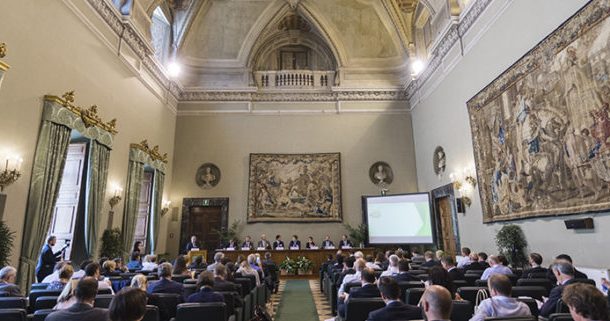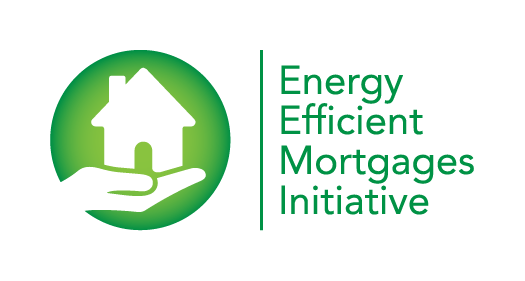
EMF-ECBC Energy Efficient Mortgage Initiative 2nd Stakeholder Meeting
Today, the European Mortgage Federation – European Covered Bond Council (EMF-ECBC) is honoured to welcome Jyrki Katainen, European Commission Vice-President responsible for Jobs, Growth, Investment and Competitiveness to deliver a Keynote Speech at its Second Stakeholder Meeting on Energy Efficient Mortgages in Brussels. The event will be opened by Paul Hodson, Head of Unit for Energy Efficiency at European Commission’s Directorate-General for Energy.
The Energy Efficient Mortgages Initiative, launched by the EMF-ECBC and its partners in September 2016, explores ways to mobilise private mortgage financing to boost energy efficient building renovation in Europe. The aim of the project is to create a suitable framework for a standardised Energy Efficient Mortgage product, which mortgage lenders in Europe can offer to borrowers seeking to purchase and retrofit an energy efficient property.
Supporting Energy Union, Growth and Jobs
The Energy Efficient Mortgages Initiative responds to the European Commission’s Energy Union agenda, which places energy and resource efficiency at the heart of achieving the EU’s energy and climate goals. In the EU, buildings are responsible for 40% of total energy consumption and 36% of CO2 emissions. By improving the energy efficiency of buildings, the EU’s total energy consumption could be reduced by 5-6% and CO2 emissions by 5%.
Furthermore, the Initiative has significance for the larger growth and jobs agenda in Europe, as more funding to boost energy renovation rates can lead to a significant increase in jobs in the building sector.
For banks and investors, a lower risk profile of green mortgages and a potential increase of value linked to more energy efficient properties can bring about tangible benefits, such as mitigation of risk and therefore a better capital treatment of banks’ green assets and protection against ‘brown discount’ of loan and investment portfolios. To this end, the Energy Efficient Mortgages Initiative seeks to develop a better understanding of how to differentiate between ‘green’ and ‘conventional’ funding and how to capture energy efficiency within financial institutions’ lending practices.
Today’s meeting brings together stakeholders from major banks and mortgage lenders, as well as from businesses and organisations from the building, valuation and energy industries across Europe to discuss the first results of the Energy Efficient Mortgages Initiative and its way forward. During the event, the EMF-ECBC will present its preliminary analysis of its recent survey on banks’ green lending practices in Europe.
Luca Bertalot, EMF-ECBC Secretary General said:
“We recognise that we have an ambitious task ahead of us; our work on Energy Efficient Mortgages has now gained clear support from market participants and in particular from the European Commission. Indeed, stakeholder consensus and institutional coordination are essential pre-conditions to enable us to move forward. We believe this Initiative to be crucial to help bridge the gap in investment needed to improve the energy efficient renovation of buildings in Europe.
The feedback from our survey on banks’ ‘green’ lending practices reveals a strong interest in further developing the green market and underlines the importance of standardisation for energy efficient mortgages. We look forward to working together with our partners across the key sectors in developing solutions to meet these needs.”
Partners of the Energy Efficient Mortgages Initiative are the Ca’Foscari University of Venice, RICS, European Regional Network of Green Building Councils, E.ON, and SAFE Goethe University Frankfurt. Today’s Meeting is supported by European DataWareHouse, a key stakeholder of the project.
More information about the Energy Efficient Mortgages Initiative, including the preliminary survey analysis report and the agenda of the Second Stakeholder Meeting, can be found here.
Notes to the Editor:
- Considering that the building stock constitutes the largest single energy consumer in the EU, and that the value of the European mortgage market is equal to 53% of EU’s GDP, there is huge potential to unlock the benefits of mortgage financing to support Energy Efficiency to the benefit of all.
- Established in 1967, the European Mortgage Federation (EMF) is the voice of the European mortgage industry, representing the interests of mortgage lenders and covered bond issuers at European level. The EMF provides data and information on European mortgage markets, which were worth over 7.0 trillion EUR at the end of 2015. The EMF currently has 17 members across 14 EU Member States as well as a number of observer members.
- In 2004 the EMF founded the European Covered Bond Council (ECBC), a platform bringing together covered bond issuers, analysts, investment bankers, rating agencies and a wide range of interested stakeholders. The ECBC currently has over 110 members across more than 30 active covered bond jurisdictions and many different market segments. ECBC members represent over 95% of covered bonds outstanding, which were worth nearly 2.5 trillion EUR at the end of 2015.
- For the latest updates from the EMF-ECBC, follow us on Twitter, LinkedIn and YouTube or visit the EMF-ECBC blog.
Sitemap
Copyright © Energy Efficient Mortgages Initiative


The project DeliverEEM has received funding from the European Union’s LIFE 2023 programme under grant agreement No.101167431. The EeMAP, EeDaPP, EeMMIP projects have received funding from the European Union’s Horizon 2020 research and innovation programme under grant agreements No. 746205, No. 784979 and No. 894117 respectively
Privacy Overview
| Cookie | Duration | Description |
|---|---|---|
| cookielawinfo-checkbox-analytics | 11 months | This cookie is set by GDPR Cookie Consent plugin. The cookie is used to store the user consent for the cookies in the category "Analytics". |
| cookielawinfo-checkbox-functional | 11 months | The cookie is set by GDPR cookie consent to record the user consent for the cookies in the category "Functional". |
| cookielawinfo-checkbox-necessary | 11 months | This cookie is set by GDPR Cookie Consent plugin. The cookies is used to store the user consent for the cookies in the category "Necessary". |
| cookielawinfo-checkbox-others | 11 months | This cookie is set by GDPR Cookie Consent plugin. The cookie is used to store the user consent for the cookies in the category "Other. |
| cookielawinfo-checkbox-performance | 11 months | This cookie is set by GDPR Cookie Consent plugin. The cookie is used to store the user consent for the cookies in the category "Performance". |
| viewed_cookie_policy | 11 months | The cookie is set by the GDPR Cookie Consent plugin and is used to store whether or not user has consented to the use of cookies. It does not store any personal data. |
